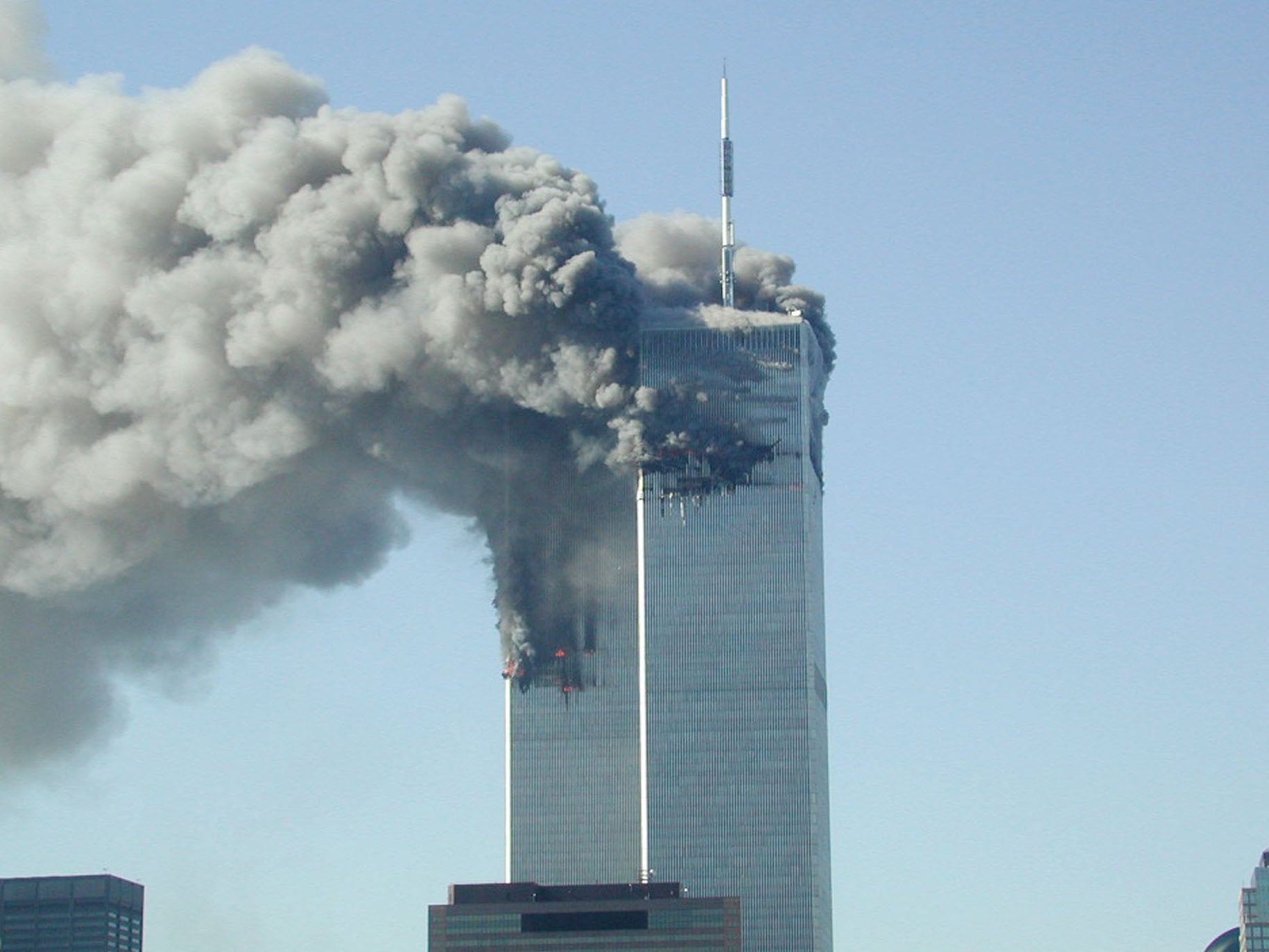I knew Muslims who celebrated 9/11 – 15 years on, they know how naive they were
In 2001, many of our communities in the West still relied on Muslim-majority countries to provide imported Imams with no way of rationalising complex global events

Your support helps us to tell the story
From reproductive rights to climate change to Big Tech, The Independent is on the ground when the story is developing. Whether it's investigating the financials of Elon Musk's pro-Trump PAC or producing our latest documentary, 'The A Word', which shines a light on the American women fighting for reproductive rights, we know how important it is to parse out the facts from the messaging.
At such a critical moment in US history, we need reporters on the ground. Your donation allows us to keep sending journalists to speak to both sides of the story.
The Independent is trusted by Americans across the entire political spectrum. And unlike many other quality news outlets, we choose not to lock Americans out of our reporting and analysis with paywalls. We believe quality journalism should be available to everyone, paid for by those who can afford it.
Your support makes all the difference.“The chickens are coming home to roost.” I'm ashamed to admit that many Muslims I know certainly felt that way – albeit inexcusably – as they watched the events of 9/11 unfold. And 15 years later, many observers – just as unfathomably – feel that Muslims’ own chickens have now come home to roost, in the form of Islamphobia, hate crime and bans on the burkini, teaching my community a few harsh lessons.
In the last 15 years, things have moved on. Many of those Muslims who celebrated on 9/11 have learned that we can’t fixate on Muslim civilian casualties at the hands of non-Muslims and look the other way when people of our faith, and in the name of our religion, kill innocents. They have also learned that we can’t flirt with anti-Semitism (indulging in conspiracy theories such as ‘Israel knew about 9/11’) and then complain about the effects of Islamophobia. We can’t always be the victims of society – even if, all too often, we still are.
The response of some Muslims to 9/11 didn’t emerge from a vacuum. Genuine concern about Western intervention in the Middle East had at that time been hijacked by elements of the hard left, many of whom viewed Muslims as useful idiots to be used to shake the foundations of capitalism. Charismatic and incendiary figures from the far left sometimes went as far as to support the Ayatollahs’ Iranian revolution – even after it became clearly undemocratic and a supporter of global terror.
But this is not enough to explain why I detected a celebratory tone from some Muslims 15 years ago.
Historically there has been a lack of modern scholarship in and on Islam, particularly within Muslim communities in Europe and the US. Self-appointed “community leaders” did not always address this quickly enough, perhaps fearing what a new generation of contemporary Islamic scholars would say or do. But this left devout young Muslims without a modern language, and with no option but to use outdated concepts like dar al harb – the “land of war”, or the non-Muslim world.
In 2001, many of our communities in the West still relied on Muslim-majority countries to provide imported Imams. These scholars came from countries that lacked a fully developed civil society, and had no way of rationalising complex global events except by either gloating or blaming Israel.
If it sounds like I'm making excuses, let me assure you: I am not. These problems show that western Muslims are sometimes more concerned with material gains, arrogantly protecting their ethno-religious territory and projecting their insecurities onto others, than they are with genuine spirituality. But the more spiritual a Muslim is, the more likely he or she is to say repeatedly that Isis has “nothing to do with Islam”.
Since 2001, many Muslims have developed the discipline of self-criticism that has long been expected of other faith communities. This newfound self-awareness isn’t just polite interfaith pleasantry, it goes right to the top. Sheikh Adel Kalbani, the former Imam of the Grand Mosque in Mecca (the closest thing to a Sunni Muslim Pope) acknowledged recently that Isis takes inspiration, albeit pervertedly, from much of the Islamic teachings in the Arab world.
Kalbani’s message is vital because the silent majority can no longer afford to be silent; if you can march against Salman Rushdie or Israeli collateral damage in Gaza, then you can march against extremism too.
Because when we say Isis has “nothing to do with Islam” we must qualify this: they have nothing to do with our Islam, the Islam practiced by the vast majority of Muslims today. But what have we done to educate wider society and our own youth about our Islam? Can traditional after-school madrassahs compete with Isis’s slick embrace of web 2.0 and the social media buzz?
The Prophet Muhammad instructed his followers that there would be constant “Mujaddids” – renewers or reformers – for his religion. Many people of faith, American evangelicals or London’s Orthodox Jews for example, are going through the same process. We should – we must – continue on our journey with them.
If we nurture our “Mujaddids” we can ultimately show how Islam can complement the Judeo-Christian tradition that is so central to Western identity.
We’ve come a long way in the last 15 years, but now this must remain our top priority, so that we can give all our communities – Muslim and non-Muslim – something actually worth celebrating.
Muddassar Ahmed is managing partner of Unitas Communications, a cross-cultural communications agency, and a former adviser to the UK Government
Join our commenting forum
Join thought-provoking conversations, follow other Independent readers and see their replies
Comments